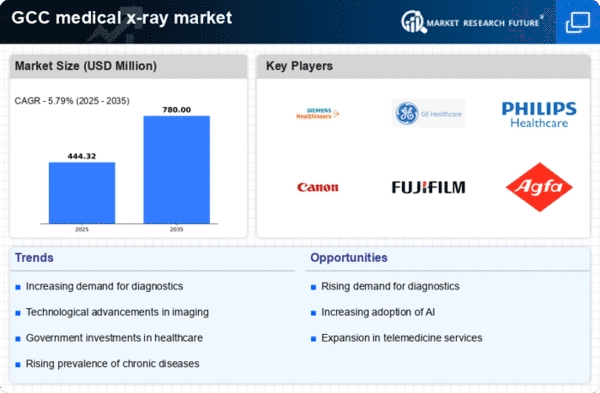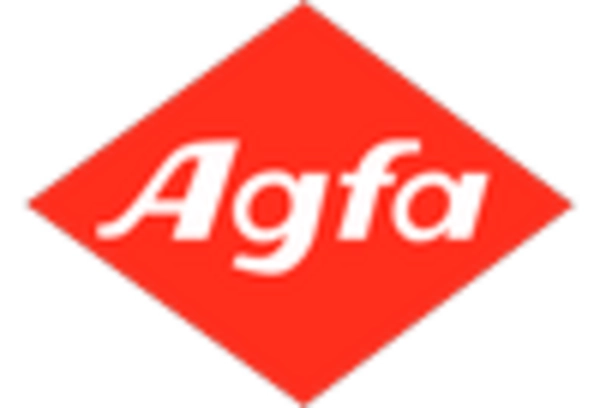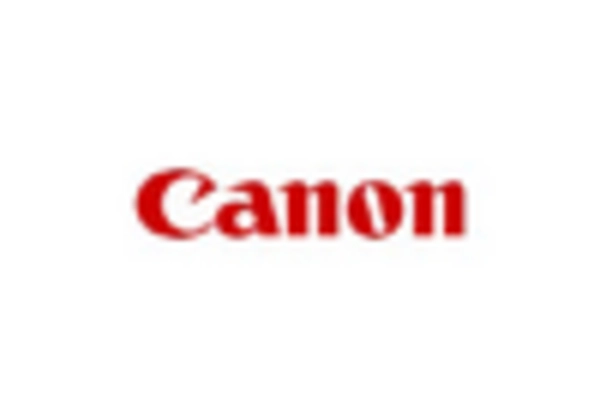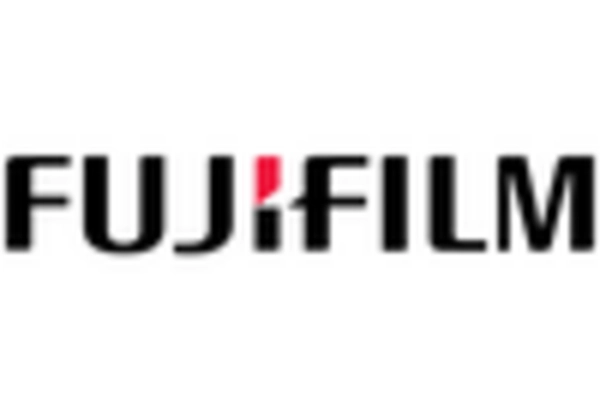Aging Population
The demographic shift towards an aging population in the GCC is a significant driver for the medical x-ray market. As individuals age, they often require more frequent medical evaluations, including imaging services. The proportion of the population aged 60 and above is expected to increase, leading to a higher incidence of chronic diseases that necessitate diagnostic imaging. This demographic trend suggests a growing need for x-ray services, as older adults are more likely to experience conditions such as osteoporosis and cardiovascular diseases, which require regular monitoring through imaging. Consequently, healthcare providers are likely to invest in advanced x-ray technologies to cater to this demographic, thereby propelling the medical x-ray market forward. The aging population not only increases demand but also encourages innovation in imaging techniques to improve patient outcomes.
Increasing Healthcare Expenditure
The medical x-ray market is experiencing growth due to rising healthcare expenditure across the GCC region. Governments and private sectors are investing heavily in healthcare infrastructure, which includes advanced diagnostic imaging technologies. For instance, healthcare spending in the GCC is projected to reach approximately $104 billion by 2025, indicating a robust commitment to enhancing medical services. This increase in funding allows for the procurement of state-of-the-art x-ray equipment, thereby improving diagnostic capabilities. Furthermore, as healthcare facilities expand, the demand for medical x-ray services is likely to rise, contributing to the overall growth of the medical x-ray market. Enhanced healthcare expenditure not only facilitates the acquisition of new technologies but also supports training and development for healthcare professionals, ensuring that the medical x-ray market remains competitive and efficient.
Government Regulations and Standards
Government regulations and standards play a crucial role in shaping the medical x-ray market. Regulatory bodies in the GCC are establishing stringent guidelines to ensure the safety and efficacy of medical imaging technologies. Compliance with these regulations is essential for healthcare providers, as it impacts the quality of services offered. The implementation of safety standards for radiation exposure and equipment performance is likely to drive investments in modern x-ray systems that meet these requirements. Furthermore, as regulations evolve, healthcare facilities may be compelled to upgrade their existing equipment, thereby creating opportunities for growth in the medical x-ray market. The focus on regulatory compliance not only enhances patient safety but also fosters innovation in imaging technologies, ensuring that the market remains dynamic and responsive to emerging healthcare needs.
Technological Integration in Healthcare
The integration of advanced technologies in healthcare is transforming the medical x-ray market. Innovations such as artificial intelligence (AI) and machine learning are being increasingly adopted to enhance the accuracy and efficiency of diagnostic imaging. These technologies assist radiologists in interpreting x-ray images more effectively, leading to improved patient outcomes. The GCC region is witnessing a surge in the adoption of digital x-ray systems, which offer faster processing times and reduced radiation exposure. This technological evolution not only streamlines workflows in healthcare facilities but also enhances the overall quality of care provided to patients. As healthcare providers continue to embrace these advancements, the medical x-ray market is expected to expand, driven by the demand for more precise and efficient imaging solutions.
Rising Awareness of Preventive Healthcare
There is a notable increase in awareness regarding preventive healthcare among the GCC population, which is positively influencing the medical x-ray market. As individuals become more health-conscious, they are more inclined to undergo regular health check-ups, including diagnostic imaging. This trend is reflected in the growing number of health awareness campaigns and initiatives aimed at educating the public about the importance of early detection of diseases. The medical x-ray market benefits from this shift, as more patients seek x-ray services for routine screenings. Additionally, the GCC governments are promoting preventive healthcare measures, which further drives the demand for diagnostic imaging. The emphasis on early diagnosis and treatment is likely to result in a sustained increase in the utilization of x-ray technologies, thereby enhancing the market's growth prospects.
















